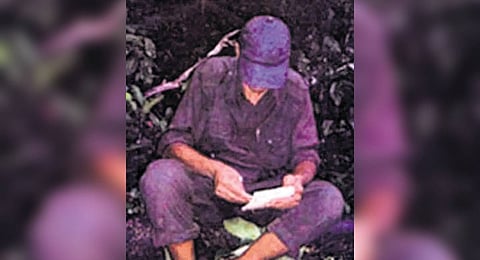

BENGALURU: With the death of top Naxal leader Vikram Gowda (44) in an exchange of fire with the Anti-Naxal Force (ANF) on Monday evening, and the arrest of Naxal leader BG Krishnamurthy (50) in 2021 by the Kerala police, the banned Communist Party of India (Maoist) faces an existential crisis in Karnataka.
Gowda’s killing is a result of heightened search and combing operations by the ANF in Malnad region since August this year, after some Naxal activity was reported there. Setting aside reports in a section of media that Gowda or other Naxals were trying to surrender, Director General of Police, Internal Security Division (ISD), Pronab Mohanty said there was “no such proposal (of surrender) by the outlaws before the Karnataka police”.
He added that the state government has a “clear policy of surrender, which is easy, fair and just. If Naxals want to surrender, they may do so by making use of the policy, and get mainstreamed in society”.
Naxalism in the state saw a sharp decline from 2018, when the number of Maoists came down to 19. According to unconfirmed reports, there are around seven underground workers (UGWs) now, of whom four are women.
Most of them, including Krishnamurthy and his wife and Naxal leader Hossaggade Prabha, had moved to neighbouring Kerala and Tamil Nadu. He, along with Gowda’s wife and a Maoist cadre, Savithri, was arrested in 2021 from near Sulthan Bathery in Wayanad by Kerala police. According to some reports, Gowda had also left the state briefly but soon returned following police action in the two neighbouring states. A school dropout, he joined the movement around 2002 as a courier and fund collector in the forests of the Western Ghats in Dakshina Kannada.
Left wing extremism in Karnataka had its biggest draw in the Kudremukh National Park agitation with Saketh Rajan, alias Prem -- by far the most celebrated Maoist-activist leader in the state -- leading the movement. Rajan was gunned down by police in an encounter in Menasinahadya in Chikkamagaluru in February 2005, along with his close associate Shivlingu. His killing spelt the death knell for the banned movement.
After him, Krishnamurthy and Gowda took on leadership roles. The former, who hailed from Chikkamagaluru, was a member of the Central Committee of the CPI (Maoist) party and secretary of the Western Ghats Special Zonal Committee, while Gowda, from a place near Hebri, headed the Kabini Dallam. He had over 50 cases registered against him in Karnataka and as many in Kerala. He had escaped arrest on at least three occasions, and carried a bounty of Rs 3 lakh announced by Karnataka, and Rs 50,000 by Kerala.
The Karnataka government’s surrender policy for rehabilitation of Maoists has attracted quite a few cadre members, who wanted to come out and lead a normal life. Since 2010, there have been 14 surrender cases of Naxalites, most of them in Chikkamagaluru. Late editor-cum-activist Gauri Lankesh was a member of the committee and had played a crucial part in encouraging Maoists to give up arms.